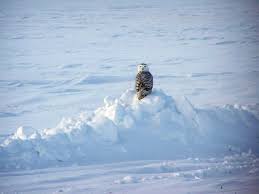
Hair from one of the oldest mummies studied at the Coyo East site, near San Pedro de Atacama in Chile. Based on this funerary trousseau, scientists believe the mummy lived around 400 to 1000 AD, during the Middle Period.
Credit: IIAM-Catholic University of the North (UCN), San Pedro de Atacama, Chile
Several anthropological studies show that, just like other pre-Hispanic natives, those who inhabited the desert in northern Chile faced periods of food shortages, severe weather conditions, crippling diseases and violence. However, a new analysis of a stress hormone in hair samples from 19 mummies of people who lived between 500 and 1,500 years ago suggests that perhaps not all of them had as stressful an existence as previously thought.
This interpretation “is different from […]

Abstinence only sign in Africa
One point 4 billion dollars, that is the amount of money the U.S. spent over a 10-year period from 2004 through 2013 promoting abstinence before marriage as a way of preventing HIV in 14 countries in sub-Saharan Africa. Unfortunately, according to the most comprehensive independent study conducted to date of the effort, the money was more or less wasted. A rigorous comparison of national data from countries that received abstinence funding under the U.S. President’s Emergency Plan for AIDS Relief (PEPFAR) with those that got none of the funding showed no difference in the age of first sexual experience or in the number of sexual partners or teenage pregnancies—all aspects of behaviors that have been linked to a higher risk of becoming infected with HIV.
Instead the study showed that one of the most important factors associated with lower levels of risky behavior was the number of years women remained in school. Other efforts that have proved effective in slowing the spread of HIV […]

Arctic Birds
Climate change has left migratory birds with nowhere to go. A recent study revealed that the Arctic region is rapidly becoming unsuitable for shorebird breeding as global warming heightens.
According to the study published in the journal Global Change Biology, a team of scientists from the University of Queensland discovered that migratory bird breeding in the Arctic could be wiped out by the year 2070.
The team came up with the conclusion after creating a research model that adapted the climate breeding conditions of 24 Arctic birds and projecting them by 2070.
Migratory birds usually travel over 20,000 kilometers from the North to the Arctic to breed. However, as the Earth warms, scientists found out that migratory birds retreat further north, being restricted to small islands in the Arctic Ocean, Science Daily reports.
“This means that countries throughout the world will have fewer migratory birds reaching their shores,” said researcher Hannah Wauchope.
She further explained that the warming Arctic could also result in major changes in the birds’ migratory pathways to find more suitable habitats.
However, apart from migratory bird breeding, she also […]












